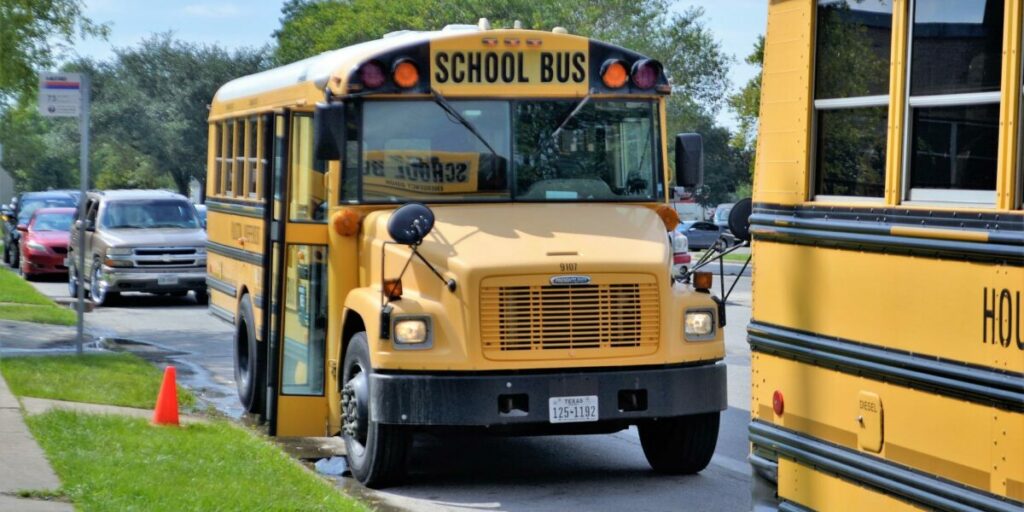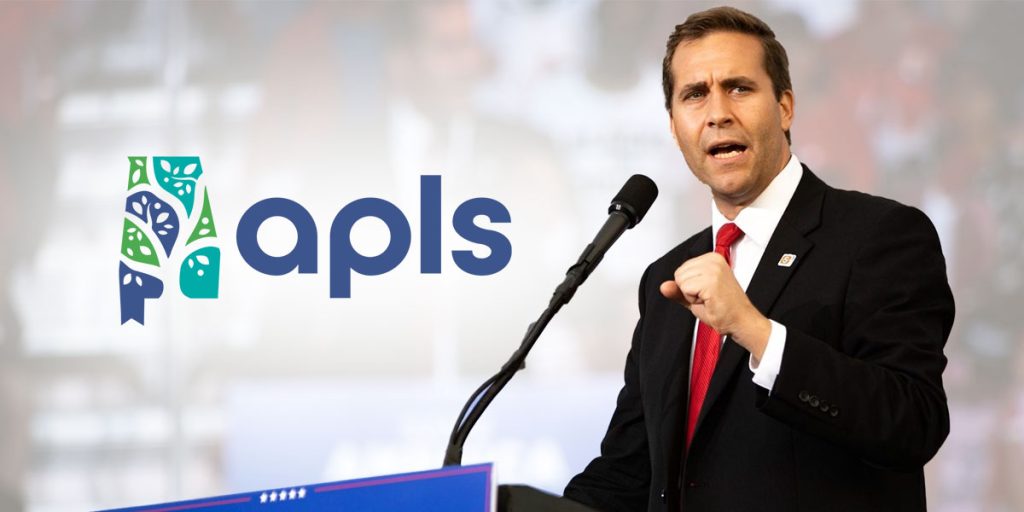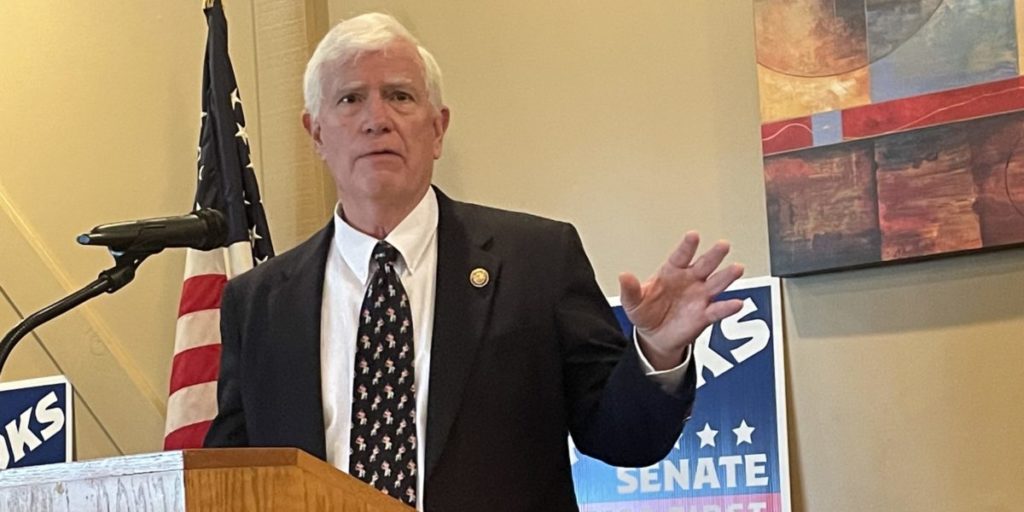One would think that our nation’s pandemic experience during the last two years would give Alabama’s lawmakers, especially the “conservative” ones, a very good reason to side with parents and education reform during the current legislative session.
But there are nearly 1.6 million reasons why they might not, because that’s how many dollars 63% of all Republicans currently in the statehouse, 65 of 102, have taken from the Alabama Education Association (AEA) in recent years, according to campaign finance records kept by the Alabama Secretary of State’s office.
The top 20 alone account for more than 57% of the $1,580,833 total haul that records show our Republican state representatives and state senators have collected from the teachers union.
I searched the public database, added up the AEA’s contributions to each lawmaker, and here’s what I found:
The Top Twenty
- State Rep. Tim Wadsworth, R-Arley: $117,625
- State Sen. Chris Elliott, R-Fairhope: $85,000
- State Sen. Garlan Gudger, R-Cullman: $65,000
- State Rep. Dickie Drake, R-Leeds: $57,500
- State Sen. Donnie Chesteen, R-Geneva: $50,000
- State Sen. Jack Williams, R-Wilmer: $50,000
- State Sen. Randy Price, R-Opelika: $47,604
- State Rep. Chris Sells, R-Greenville: $47,500
- State Rep. Tommy Hanes, R-Scottsboro: $40,000
- State Rep. Ritchie Whorton, R-Owens Cross Roads: $40,000
- State Rep. Phillip Pettus, R-Killen: $32,944
- State Sen. Shay Shelnutt, R-Trussville: $32,500
- State Rep. Corey Harbison, R-Good Hope: $32,500
- State Rep. Ginny Shaver, R-Leesburg: $32,500
- State Rep. Debbi Wood, R-Valley: $32,500
- State Sen. Greg Albritton, R-Atmore: $30,000
- State Sen. Jimmy Holley, R-Elba: $30,000
- State Sen. Andrew Jones, R-Centre: $30,000
- State Rep. Ed Oliver, R-Dadeville: $29,538
- State Rep. Rex Reynolds, R-Huntsville: $28,000
The Rest
- State Rep. Tracy Estes: $27,500
- State Rep. Wes Kitchens: $27,500
- State Rep. Paul Lee: $26,398
- State Rep. Will Dismukes: $25,000
- State Rep. Bob Fincher: $25,000
- State Rep. Jamie Kiel: $25,000
- State Rep. Rhett Marques: $25,000
- State Rep. Shane Stringer: $25,000
- State Sen. Tom Butler: $22,500
- State Rep. Steve Clouse: $22,500
- State Rep. Steve Hurst: $22,221
- State Rep. Brett Easterbrook: $20,000
- State Rep. Gil Isbell: $20,000
- State Rep. Craig Lipscomb: $20,000
- State Rep. Randall Shedd: $20,000
- State Sen. Jabo Waggoner: $17,500
- State Rep. Alan Baker: $17,500
- State Rep. Mike Holmes: $17,500
- State Rep. Kyle South: $17,500
- State Rep. Rodney Sulllivan: $17,500
- State Sen. Clyde Chambliss: $15,000
- State Sen. Larry Stutts: $15,000
- State Rep. Matt Simpson: $15,000
- State Rep. David Standridge: $15,000
- State Sen. Arthur Orr: $12,500
- State Sen. David Sessions: $12,500
- State Rep. Allen Farley: $12,500
- State Rep. Tom Whatley: $10,000
- State Rep. Cynthia Almond: $10,000
- State Rep. Reed Ingram: $10,000
- State Rep. Joe Lovvorn: $10,000
- State Rep. Kenneth Paschal: $10,000
- State Rep. Proncey Robertson: $10,000
- State Rep. Van Smith: $10,000
- State Rep. Margie Wilcox: $8,000
- State Rep. K.L. Brown: $7,500
- State Rep. Danny Crawford: $7,500
- State Rep. Harry Shiver: $5,500
- State Rep. Chris Blackshear: $5,000
- State Rep. Joe Faust: $5,000
- State Rep. Lynn Greer: $5,000
- State Rep. Nathaniel Ledbetter: $5,000
- State Rep. Mac McCutcheon: $5,000
- State Rep. Jeff Sorrells: $5,000
- State Rep. Andy Whitt: $3,000
Worth Mentioning
- Lt. Gov. Will Ainsworth, who is also president and presiding officer of the State Senate: $50,000
- State Auditor Jim Zeigler: $5,000
Caveat
Sometimes AEA contributions are filed on the state’s online database under “Alabama Voice of Teachers For Education Association,” which is the name of its political action committee. Other times its “Ala. Voice of Teachers for Education,” and “AVOTE” or “A-VOTE.” There might be even more ways it’s filed, but I’m not sure.
All those search term distinctions, even that dash, cause the report to generate different contributions, so who knows how much AEA money is actually given to each Republican lawmaker. The above numbers are “at least” figures.
You can visit the Secretary of State’s website and search the database yourself. It’s fairly easy, and will show you who else is contributing to each lawmaker.
Why this Matters
First, human nature causes one to give more attention to people who give us something — whether it’s adulation, criticism, love, pleasure, or in this instance, campaign cash.
Second, a group like the AEA isn’t going to throw its money away by contributing to lawmakers who’ll oppose its agenda, which has historically been one grounded in maintaining the status quo, one that’s favored more centralized authority, and one that has opposed giving parents more control over where and how and from who their children receive an education.
And with thousands of teachers across the state paying dues, and in the past without a choice, the AEA grew into a financial juggernaut that had an outsized influence on state policy that eventually grew well beyond the boundaries of education issues alone.
That’s why the Alabama Republican Party adopted a rule long ago banning its members from accepting money from the national and state teachers union.
So, under the AEA’s oversight, Alabama’s education system languished in mediocrity and failure, and languishes there today, while our sister states have adopted many reforms aimed at helping local systems, and parents, find better, more tailored solutions to educating their children.
Third, and here’s the kicker — there’s a really big education reform bill before the State Legislature that the AEA strongly opposes. From Al.com:
The Parents’ Choice Act, as introduced by (State Sen. Del) Marsh, would establish a path for parents to tap state money normally used on their child’s public school education — about $5,500 per student per year — and use it to pay for private school, a public school outside their district, home schooling expenses or other alternate education paths.
Many “conservative” Republican lawmakers are hesitant to support the bill, according to reports, and some reformers are concerned it won’t pass, or at least not without being significantly watered down.
The Opposing View
Lawmakers will say that accepting a campaign contribution from a person or entity doesn’t mean they’ll support whatever that contributor wants. And they’d be right to say that, because it’s the law.
And they’d also say that the AEA isn’t supporting them so they’ll vote for issues that align with the teachers union, but the other way around — they support laws that protect teachers, first, and that’s why the AEA has chosen to contribute to their campaigns.
They might even say that these attempts at reform are counterproductive and won’t work.
Maybe so, but that’s for their constituents to decide.
Going Forward
Sunshine is the best disinfectant.
These Republican lawmakers represent many of the state’s most conservative-minded communities, and it stands to reason that their constituents would want to enact every measure of education reform possible, especially in this “Year of the Parent” moment we’re seeing in education across the country.
If taking money from the teachers union is a good thing, then they’d be proud to be on this list, especially those on the top. They might even share it with their constituents to show how much support they receive from the AEA.
But if these lawmakers are not proud to be on this list, or worry what their constituents might think, then they ought to take a long, close look at the Parents’ Choice Act, and then show our state’s parents who they really represent.
(J. Pepper Bryars is Alabama’s only reader supported conservative journalist. You can support his writing by subscribing here.)













